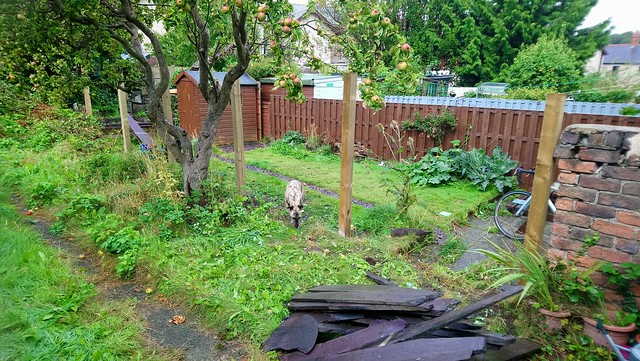Podcast: Play in new window | Download
As I got to know some of my neighbours better this week I thought I’d look into the the origins of the word neighbour [ˈneɪbə] / neighbor [ˈneɪbɚ].
Definition:
- a person who lives near or next to another
- a person or thing near or next to another
- to be or live close (to a person or thing)
[source]
It comes from the Middle English neighebor [ˈnɛixəbur] (neighbour, citizen), from the Old English nēahġebūr [ˈnæ͜ɑːx.jeˌbuːr] (neighbour), from the Proto-Germanic *nēhwagabūrô [ˈnɛː.xʷɑ.ɣɑ.ˌbuː.rɔːː] (neighbour), from *nēhwaz [ˈnɛː.xʷɑz] (near, close) and *gabūrô (dweller) from *būraz (room, chamber, dwelling, residence) [source].
Other words derived for the Proto-Germanic *nēhwaz include near, next and nigh (near, close by), as in ‘the end is nigh’ in English, nah [naː] (near, close, nearby) in German, and na (close) in Dutch [source].
Other words derived for the Proto-Germanic *būraz include bower in English, buur(man/vrouw) [byr] (neighbour) in Dutch, boer [buːr] (farmer, peasant) in Dutch and Afrikaans, Bauer (birdcage) in some German dialects, and bur [bʉːr] (cage) in Swedish [source].
Here’s a video I made of this information:
Video made with Doodly – an easy-to-use animated video creator [affiliate link].
German, Dutch and Swedish words pronounced by https://speakabo.com/text-to-speech/
I also write about etymology, and other language-related topics, on the Omniglot Blog.
You can also listen to this podcast on: Apple Podcasts, Stitcher, TuneIn, Podchaser, PlayerFM or podtail.
If you would like to support this podcast, you can make a donation via PayPal or Patreon, or contribute to Omniglot in other ways.

